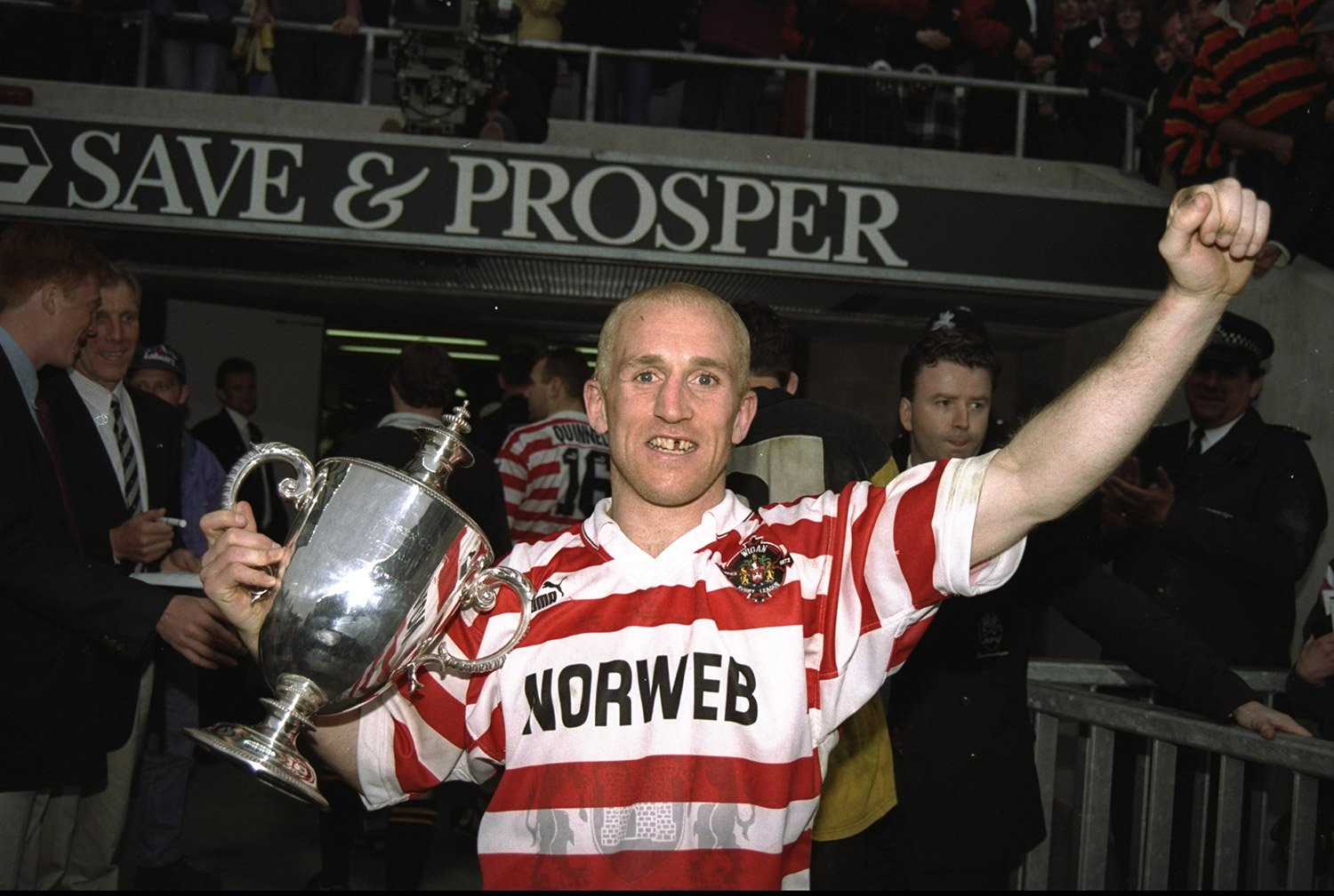At its best sport can generate a sense of wonder… and we should never let that disappear
But at its cleanest and brightest sport generates a sense of wonder.
Twenty One years have passed since Danny Blanchflower died. He was a wonderful footballer and, in his later years, a captivating journalist. Yet he will be chiefly remembered for one observation. ‘The great fallacy is that the game is first and last about winning. It’s nothing of the kind,’ said Danny. ‘The game is about glory. It’s about doing things in style, with a flourish, about going out and beating the other lot, not waiting for them to die of boredom.’
There was Ovett, Coe and Daley, Mo and Jessica, Carl Lewis and Usain Bolt, Dan Carter, Shaun Edwards, Brian O’Driscoll and Serge Blanco.
In truth, it was more than an observation. With Blanchflower, it was an expression of a deeply-held conviction. And that conviction was shared by people we revere, from Ferguson to Flintoff, Botham to Ballesteros. Of course it was romantic, and bloodless pragmatists would tell us it was hopelessly idealistic. But if romance and idealism could find no place in sport, then sport would not be worth our time or our trouble.
Somebody once described sport as ‘a glorious irrelevance’, and that seems about right. When we step back, we see there is something inherently trivial in the spectacle of adults playing the games that children play.
From time to time we squirm when a po-faced manager proclaims: ‘Football isn’t a matter of life and death. It’s much more important than that,’ thus quoting something Bill Shankly never actually said. Because neither football nor sport itself is really that important and to believe otherwise is to sanction all manner of grotesque excess.
The growth of the drug culture is the inevitable consequence of that attitude. In my half-century of covering sport, the mood has changed from blissful naivete to instinctive cynicism.
The magnificent sport of track and field has been allowed to degenerate into something resembling a competition between chemists. Cycling is equally bad and probably worse. Professional boxing, already on its last legs, offers opportunities for the desperate and deluded, while any physical comparison between today’s rugby players and those of, say, 20 years earlier, yields startling results. Given the widespread use of performance-enhancing substances in many sports, it is difficult to believe a sport as wealthy and physically demanding as football is impervious to temptation.
The issue of wealth — largely due to television money — has transformed our perceptions of sport.
For the first 13 years of The Mail on Sunday’s existence, rugby maintained the pretence it was an ‘amateur’ game. Reality was recognised when it went ‘open’ in 1995. After years of comparative penury, Test cricketers are now being paid what they are worth and earnings have generally improved, save for those young county pros whom the sensitive Kevin Pietersen last week referred to as: ‘All the muppets who are on £18 grand.’ But football has seen the real explosion of wealth. With its extraordinary television deal and its contemptible refusal to offer lesser leagues a reasonable share of its bounty, the Premier League has become opulent beyond imagination. Much of this has gone to the players who generate the riches and are therefore the most deserving.
A good deal has gone to clubs who persist in extorting the highest ticket charges in Europe despite their windfall. But an offensive chunk has gone to that band of blood-suckers known as ‘football agents,’ who perform no useful function, contribute nothing and who, in 2013-2014, took out an obscene total of £115.2m. It is a scandal which football seems strangely incapable of eliminating.
So, with too many drugs, too much money and an extravagant sense of self-importance, has sport been digging its own grave these past 50 years? Not at all. Without pausing to reach for a reference book, I set the images whirling across the memory like characters on a carousel.
There was Federer and McEnroe, the fading Ali and the bull named Tyson. There was Ovett, Coe and Daley, Mo and Jessica, Carl Lewis and Usain Bolt, Dan Carter, Shaun Edwards, Brian O’Driscoll and Serge Blanco. There was the graceful Gower and mesmeric Warne, Sachin and Vivian, Holding and Sir Garfield.
And there was Best and Cantona, the majestic Moore and that incomparable Barcelona team which Pep Guardiola assembled, a side sprinkled with stars and little Messi shining brightest. In the face of such majesty, of brilliance akin to genius, sport’s drawbacks seem no more than minimal distractions.
